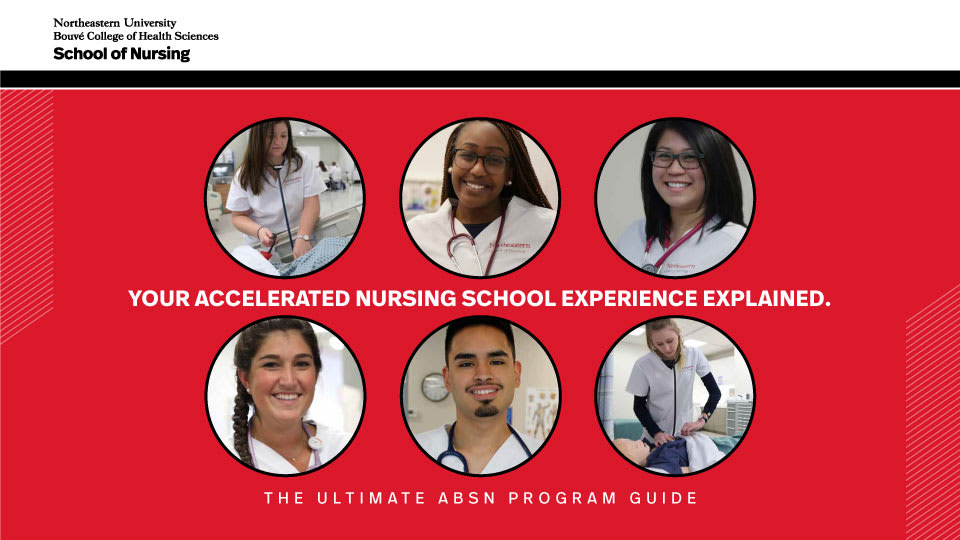All About Nursing Clinicals
Each blog post is dated and contains accurate information as of that date. Certain information may have changed since the blog post publication date. If you would like to confirm the current accuracy of blog information, please visit our ABSN overview page or contact admissions at (866) 892-3819.
What are clinicals in nursing school? Nursing clinicals, also called "clinical rotations" or "clinicals," are a type of experiential learning. During a clinical, you'll be placed in a healthcare facility, where you'll provide direct patient care under. supervision. You'll complete clinicals in various practice areas, like obstetrics and mental health.

When you’re new to the world of nursing, the unfamiliar terminology can be a bit confusing. For example, as a nursing student, you’ll complete nursing skills and simulation labs, and you’ll also have clinical rotations. Clinical rotations are also known as “nursing clinicals” or simply “clinicals.”
Clinical rotations are an important part of Northeastern University’s Accelerated Bachelor of Science in Nursing (ABSN) program, which enables qualified applicants to earn a nursing degree in as few as 16 months over four semesters. Our Accelerated BSN program includes online coursework and nursing labs, in addition to nursing clinicals, to prepare you to provide the best possible care to your future patients.
What are clinicals in nursing school and why are they important? You’ll get those answers here, along with a general look at what to expect in nursing school.
What Are Clinicals in Nursing School?
So, exactly what are clinicals in nursing school? A clinical rotation is an experiential learning module. You’ll be placed into a nearby hospital, known as a clinical partner, where you’ll work shifts providing patient care under the close supervision of your clinical instructor or preceptor.
Every nursing student must complete multiple clinical rotations throughout their degree program. You’ll have opportunities to work in a variety of settings and specialty areas. For example, you may complete nursing clinicals in:
- Adult health
- Obstetrics and women’s health
- Pediatrics
- Mental and behavioral health
- Acute and critical care
- Public health
- Health management and leadership

In an ABSN program, you’ll begin clinical rotations soon after entering nursing school. But don’t worry! You won’t be placing IV lines or administering medications right away. First, you’ll be directed to do simple tasks aligned with your current nursing knowledge. During later nursing clinicals, you’ll tackle increasingly skilled nursing tasks.
For each clinical rotation, it’s expected you’ll arrive early for each shift dressed professionally. (We recommend pairing your scrubs with compression socks to reduce leg fatigue during long shifts.) Arrive ready to learn and willing to accept feedback and guidance from your instructor. Don’t hesitate to ask questions as needed. At the end of each shift, you’ll participate in a debriefing, during which you’ll assess how you handled certain situations. You’ll also have an opportunity to ask any lingering questions.
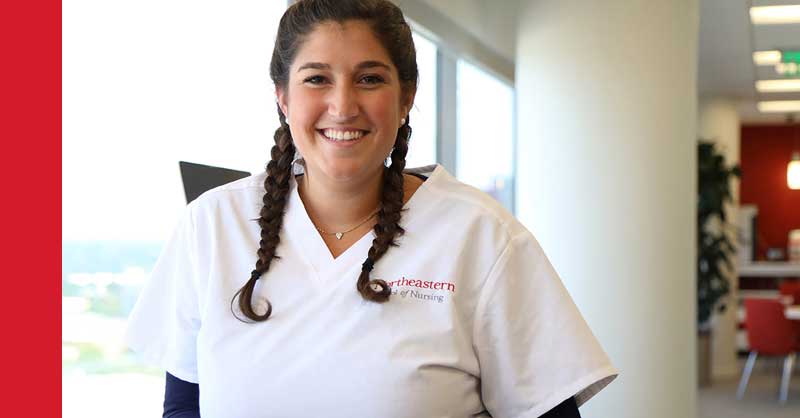
Still wondering if becoming a nurse is right for you? Check out these 5 reasons to make a career change to nursing.
Why Clinical Experience Is Important in Nursing School
A competent, practice-ready nurse needs more than just nursing theories learned from coursework. Nurses also need to know how to use their nursing knowledge to assess clinical situations, make well-informed judgment calls and respond to situations appropriately. Furthermore, they need certain skills, like wound care and nasogastric tube insertion.
Nursing clinicals enable you to develop the skillset and analytical reasoning you’ll need throughout your career. You’ll practice your nursing skills until they become second nature. Furthermore, they’ll also allow you to practice interacting and connecting with real patients. Developing a good bedside manner is crucial for a nurse.
Here’s a closer look at why clinical experience is so crucial for nursing students.
Nursing Clinicals Give You a Feel for the Nursing Profession
Nursing students at Northeastern are required to complete a blend of coursework, labs and clinicals. While the online coursework and nursing labs set the foundation for your education and skills development, it’s the clinical rotations that really show you the day-to-day responsibilities of nursing.
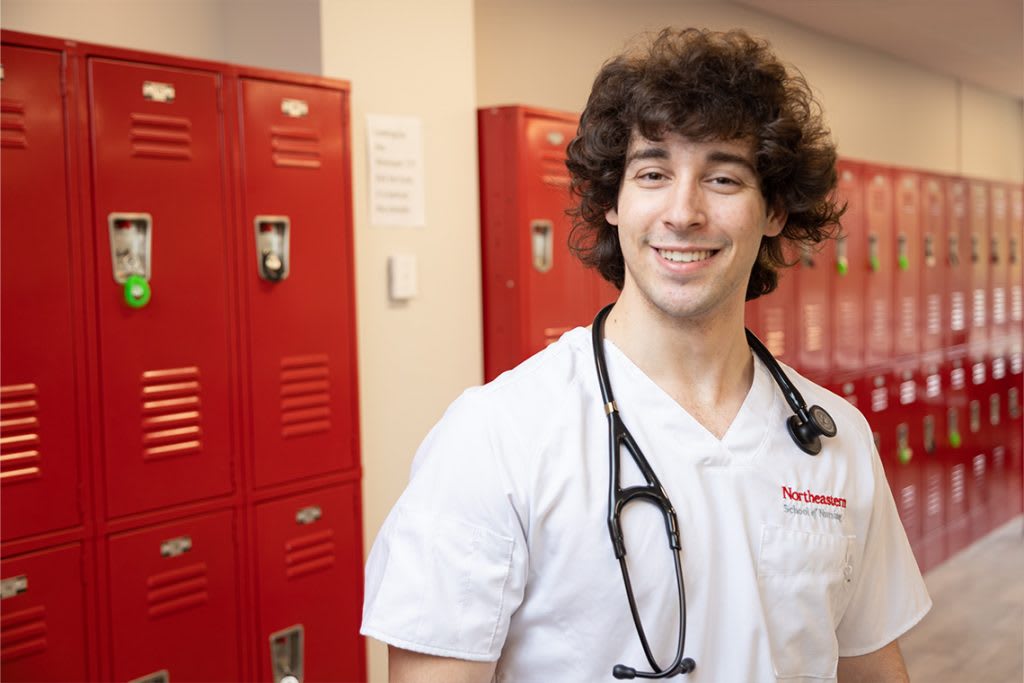
Clinicals Expose You to a Variety of Practice Areas
Our ABSN program will introduce you to a variety of clinical settings across the healthcare continuum, with your first rotation taking place in the first semester. You’ll find we partner with both big-name hospitals and small suburban healthcare facilities so you gain a broad perspective of the nursing profession, as well as experience the different practice areas within the occupation.
As you navigate through the various clinical rotations, you’ll probably find something special you like about each one. Your experiences across nursing clinicals can help you decide which specialty areas you want to explore after graduation as a registered nurse (RN).
As someone who wants to be a labor and delivery nurse, Patti, an ABSN program graduate from our Charlotte location, absolutely loved her first clinical, which focused on women and families.
Being a first-semester student, Patti was surprised by all the skills she could apply in this clinical. She helped with operating room tasks, assisted a mom and newborn in recovery and performed post-partum checks. This clinical rotation enabled Patti to assess whether becoming a labor and delivery nurse was the right choice for her.
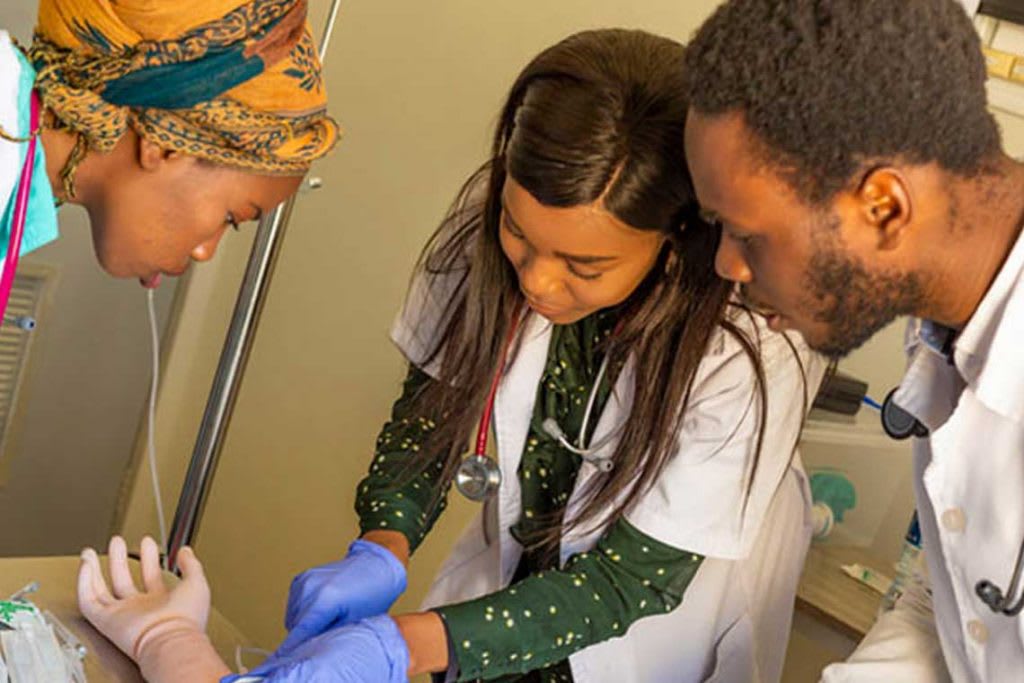
What is nursing school like aside from clinical rotations? Learn all about it here.
Quality Clinical Placements Further Your Nursing Education
Like most nursing schools, we can’t guarantee your placement in a specific hospital or healthcare facility. What we can guarantee, however, is that we’ll place you in quality clinical environments conducive to your nursing education and promote your personal and professional development.
At least one study has shown that positive clinical experiences are more likely linked to how valued and supported a student feels than to geographic or other aspects of the placement.
Megan, an ABSN program graduate from our Burlington site location, was impressed with the wide range of clinical rotations she could complete through our ABSN program. The experience she gained helped her become confident in real care scenarios and as a practice-ready nurse.
Clinicals Clear Up Nursing Student Misconceptions
When it comes to what to expect in nursing school, a common misconception is that the best nursing school clinical experiences only happen in big-name hospitals. Nothing could be further from the truth. In fact, several variables are at play when it comes to patient care, making it impossible for students to encounter the exact same experiences everywhere. You might see more diverse patients in a community hospital or gain more in-depth experience in a smaller healthcare facility, for example.
Another nursing student misconception when it comes to clinical practice is that you can approach clinicals the same way you approach labs or online lecture-based learning. Your clinical instructor will lead you through your responsibilities and teach you along the way, but you will need to take a proactive approach to benefit from this experience. Never hesitate to ask your clinical instructor to teach you or connect you with the individuals who can help answer your questions.
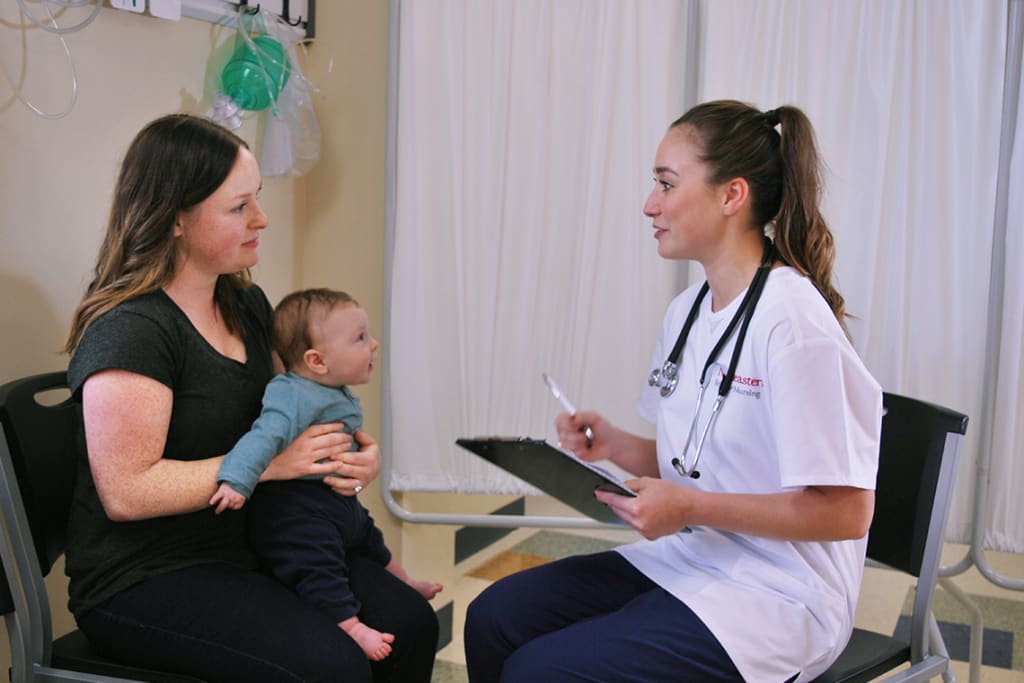
Clinical Rotations Provide Students with Practical Experience
As a Northeastern ABSN student, you’ll complete six clinical rotations, each one comprising 72 hours of practical experience. During these rotations, you can expect to perform health assessments, develop care plans and take vitals under the watchful eye of an instructor. You’ll have opportunities to practice your skills repeatedly so you can feel comfortable and confident in your role.
In the final weeks of the program, you’ll complete a preceptorship, which is also known as a role transition experience. Under the guidance of a preceptor, who is a registered nurse, you’ll gain concentrated clinical experience in a particular area of practice. You’ll work the same shifts as your preceptor, and as you refine your skills, you’ll take an active, if not primary, role in patient care.
Pursue Your Nursing Degree at Northeastern University
The comprehensive nursing curriculum at Northeastern will teach you to become a confident, capable nurse who puts their patients’ best interests first. When you’re ready to make a positive difference in your community as a healthcare professional, the friendly admissions team at Northeastern is here to guide you through every step of the application process.
Contact an admissions counselor today to get started.

